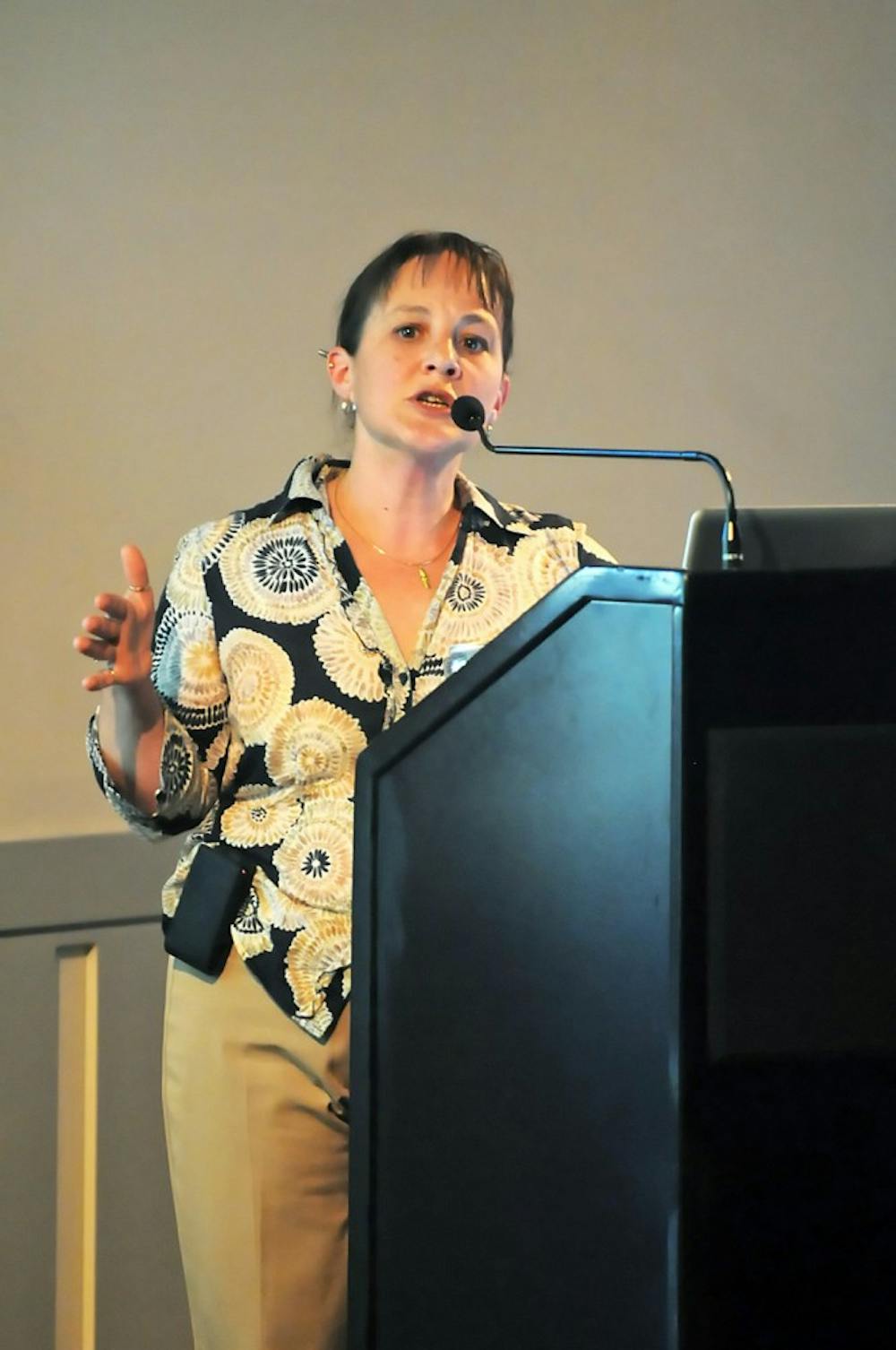
“Who’s ready to get on a plane with me right now?” Doctors Without Borders board member Kelly Grimshaw asked a crowd of about 30. Speaking about the nature of disaster response, Grimshaw addressed the topic of global humanitarian emergencies in Claudia Cohen Hall on Monday evening.
Grimshaw was invited by the Middle East Center, as well as the African Studies Center, the Center for East Asian Studies, and the South Asia Center to speak on an international issue as part of the Global Distinguished Lecture Series. She has worked as a nurse practitioner, project coordinator and medical coordinator in various Asian and African countries and developed a tuberculosis aid program in Turkmenistan.
Doctors Without Borders, also known as Médecins Sans Frontières, or MSF, responds to epidemics, conflicts and natural, man-made and technological disasters around the world. For the majority of her talk, Grimshaw detailed MSF’s rules and goals for each mission.
Before committing to a mission, MSF initially assesses the threat, target population, geological and political context, health problems and resources needed for the mission in question. MSF focuses most heavily on supplying measles vaccines once in the area, as these decrease morbidity and mortality rates more than water, sanitation and food services.
Grimshaw went on to describe the most typical health concerns MSF members discover on their missions, including female genital mutilation, malaria and HIV, as well as how the organization typically deals with these issues.
As she encouraged members of the crowd to consider joining MSF, Grimshaw stressed the importance of previous professional experience, knowledge of additional languages, international travel and being an active member of one’s community.
Jim Ryan, who organized the event and is a program assistant at the Middle East Center, wanted to create an event that combined global issues with the medical field and said the event successfully “unified the global outlook that each center has.”
Though Grimshaw mentioned the difficulties and dangers of MSF missions, many students left the event even more inspired. College senior Tobi Bosede enjoyed hearing about the complexities of such missions, claiming she had never before “gotten a first-hand account of the experience of working abroad.”
First year medical student Julie Caplow cited MSF as one of the reasons she pursued medicine. “In medical school, it’s easy to get into the details of the biology we’re learning, but this event reminded me of the bigger picture,” she said.
The Daily Pennsylvanian is an independent, student-run newspaper. Please consider making a donation to support the coverage that shapes the University. Your generosity ensures a future of strong journalism at Penn.
DonatePlease note All comments are eligible for publication in The Daily Pennsylvanian.





